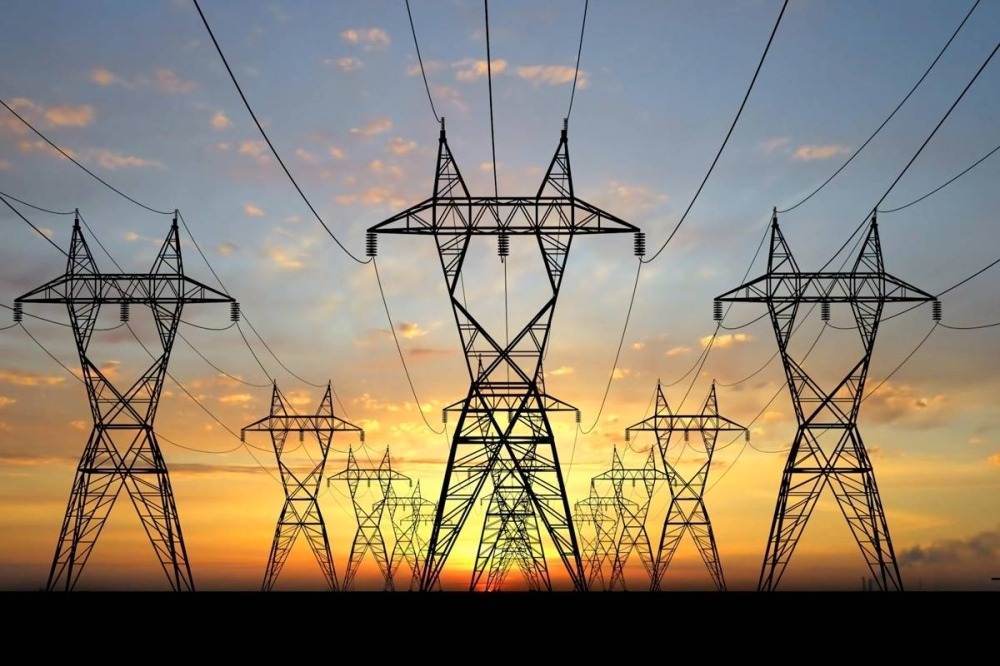Electricity shortage looms as government urged to accelerate projects

• Limited power cuts implemented in agricultural and industrial areas. Current measures are seen as reactive, lacking a comprehensive long-term plan.
• Scheduled cuts in 62 residential areas were retracted by the Ministry of Electricity.
• State Audit Bureau reports significant delays in projects. Forecasted power shortages during summer seasons from 2023 to 2025 due to delayed projects.
The pressure on Kuwait’s electricity grids has eased slightly in recent times. This has resulted in limited scheduled power cuts in several agricultural and industrial areas. However, this relief comes with a caveat.
Reactive measures without a comprehensive plan
These government measures appear to be reactive solutions rather than part of a well-defined plan. The government has not implemented a comprehensive program to address the power crisis. This lack of foresight suggests that the crisis is likely to worsen unless decisive actions are taken.
Informed sources have reported to Al-Jarida newspaper, that the Ministry of Electricity retracted previously announced scheduled cuts in 62 residential areas across six governorates. These cuts originally included industrial areas like Mina Abdullah, Al Rai, and Al Sulaibiya, which were slated to face two-hour outages starting from 1 pm.
Additionally, farms in Al Wafra and Al Abdali were also included in the planned cuts, with outages starting from 12 pm.
Independent of the scheduled cuts, there was a sudden power outage in parts of Salwa. This was caused by the failure of two secondary feeders from the main C transformer station. The outage impacted a limited area within Block 12 of Salwa.
Emergency teams were deployed to the site to restore power as quickly as possible.
Delayed projects and maintenance issues
The roots of the current crisis were highlighted in a 2022/2023 report by the State Audit Bureau. The report pointed out that most projects aimed at increasing electricity generation capacity have been delayed until 2035.
This includes delays in the construction of power plants. Additionally, the report criticizes the inadequate maintenance of existing power stations and networks. This combination of factors has left the Ministry unable to meet the growing demand for electricity since 2023.
The Bureau’s report predicts a power shortage during summer seasons from 2023 to 2025. This shortage is a result of delayed projects that prevented the addition of 12,750 megawatts to the power grid.
The threat of scheduled power cuts has loomed over the country for two days in a row.
The Ministry of Electricity and Water and Renewable Energy announced that 62 areas could face cuts during peak periods if necessary. However, only 5 specific areas – Al Wafra and Al Abdali farms, Mina Abdullah, Al Rai, and Al Sulaibiya – experienced agricultural and industrial cuts lasting two hours.
A decrease in electricity load provided some relief. Yesterday’s load dropped to 16,430 megawatts, down 370 megawatts from the previous day’s 16,800 megawatts. This decrease prevented cuts in residential areas.
To avoid a repeat of the previous day’s outages that affected over 40 areas, the Ministry will announce the timing of scheduled power cuts for each area one hour before via social media. This will allow residents to take precautions.
Addressing the energy shortage requires a government policy decision to support production stations
Ministry sources say the energy shortage requires a government policy decision. New production units and power stations are needed to bridge the gap between consumption and available energy.
These sources warn that the electricity crisis will likely continue and worsen in 2025 due to rising temperatures, production shortfalls, and recent expansions in state projects and electricity access.
Moreover, there’s a major hurdle – a lengthy bureaucratic process. This slow approval cycle puts Kuwait in a difficult spot, especially considering the increasing demand for electricity and the limitations of current production.
Audit Bureau’s remarks
Adding to the problem, the State Audit Bureau has identified shortcomings in the Ministry of Electricity and Water’s plan to address these needs.
The Bureau warned that these shortcomings could lead to a significant increase in spending (around 30 million Kuwaiti dinars) for the 2023/2024 budget. This would be a violation of the government’s directives for budgetary reform.
The situation is even more concerning because the Bureau has been raising similar concerns for several years. They have repeatedly pointed out the anticipated electricity shortage during summer seasons from 2023 to 2025.
The Bureau’s latest report highlights the delay in most projects within the Ministry’s plan to meet electricity and water demands until 2035.
The Bureau has gone a step further, revealing delays in all the power plant projects that are crucial for meeting the country’s current and future energy needs.
They have urged the Ministry to identify the reasons behind these delays and expedite the implementation of future projects. The Bureau also emphasizes the importance of collaboration between the Ministry and other relevant government agencies.
Only through a combined effort can Kuwait overcome these challenges and ensure a stable electricity supply.
Ministry of Electricity’s response
The Ministry of Electricity and Water recently responded to a State Audit Bureau report that highlighted delays in ministry projects. The Ministry attributed these delays to several factors.
Firstly, they cited the length of the documentary cycle required for project approvals. This bureaucratic process can be time-consuming and hinder progress.
Secondly, the Ministry pointed to the need to meet the requests of some regulatory bodies. While these requests are likely intended to ensure safety or other important considerations, they can add another layer of complexity and potentially slow down project timelines.
Finally, the Ministry acknowledged delays in project implementation itself, meaning projects were not being completed according to their originally planned schedules.
The State Audit Bureau’s report also raised concerns about a specific project: radical maintenance work on major power plants and their electricity networks. This critical project, valued at KD 598 million, is facing delays. These delays have the potential to impact the country’s ability to meet electricity demand, with potential shortfalls starting in 2023 and continuing for several years.
4 power plant projects stalled, raising concerns about electricity supply
The Audit Bureau of Kuwait has raised serious concerns about delays and setbacks in four major power plant projects.These long-term projects are critical for the country’s infrastructure, and the delays cast a shadow over Kuwait’s ability to meet its growing electricity and water needs.
The value of outstanding work on these projects is a staggering KD 276 million, which represents more than half (53%) of their total cost (KD 523 million). This significant financial commitment highlights the urgency of completing these projects.
The Audit Bureau’s report identified five specific power plants facing delays:
- Sabiya Power Plant (250 and 900 MW)
- Nuwaiseeb Power Plant (3600 MW Phase 1)
- Al Zour North Power Plant (2700 MW Phases 2 and 3)
- Khairan Power Plant (1800 MW Phase 1)
- Shaqaya Power Plant (1500 MW Phase 2 and 2000 MW Phase 3)
The report warns that these delays could lead to a critical shortage of electricity and water during the summer months, a time of peak demand. This shortage would have a ripple effect across the country, impacting residents and businesses alike.
The financial repercussions of the delays are also a major concern. With these projects unfinished, the Kuwaiti government may be forced to pay for additional capacity from elsewhere to meet its needs. This could put a significant strain on the national budget.
Recent power outages
Kuwait has been grappling with power outages for several years. The most significant incident occurred in February 2015, when a technical malfunction in the air cables at the Al-Sabya station knocked out more than 2,000 megawatts of power. This plunged large parts of the country into darkness.
There have also been numerous fires at secondary stations that have caused disruptions in various regions across all governorates.
The Ministry of Electricity, Water and Renewable Energy reported a concerning number of outages in 2023 – 1,071 between January 1st and August 30th. These incidents occurred during the peak load period.
These frequent outages have raised concerns about a major electricity crisis in the coming years. Those fears became a reality this summer, as power cuts peaked yesterday and are expected to continue throughout the peak season due to the increased demand for electricity.












